

Tao Te Ching
Search Sages
Enter all or part of an sage's name or biography in the fields below, then press tab or enter to filter the list of Authors. Click the headings Name or Biography to sort by that column. Diacritics are ignored when searching.
Click on the author's name to go to their page.
| Author Name | Biography |
|---|---|
| Al-Kindi | 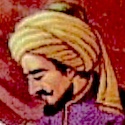 Al-Kindi Al-KindiWhile European countries were still stuck in the dark ages of almost universal superstition and ignorance, Al-Kindi - knows as “father of Arabic philosophy” - precipitated the “Moslem Enlightenment,” one of the true golden ages of human history, a time that threw off its dogmatic shackles of uncritical belief and advanced science, direct experience unfettered by external sources, understanding of the sense and not just the words. A famous historian, physician, polymath, musician and mathematician; he brought Hellenistic wisdom into the Muslim world and shocked his contemporaries by appreciating Christianity. |
| Bunan | 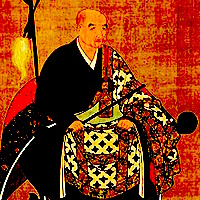 Bunan BunanWhen young and known as the “Kana-writing boy” because of his skills, Bunan started practicing Zen and became a married innkeeper but also an addicted gambler and alcoholic. A chance encounter with a teacher, Gudo led to a radical life change, his enlightenment, and a recognition of the corruption that had entered the Rinzai Zen tradition. He became a famous poet, the teacher of Shoju Etan, teacher to Hakuin who revitalized Japanese Zen, and started many of the modern lines of Zen masters. Bunan eschewed fame and fortune, conventionality, rules, and following the words of the teaching rather than the sense. |
| John Blofeld |  John Blofeld John BlofeldWhen very young, Blofeld came upon a statue of the Buddha and the experience changed his life redirecting it toward the East where he taught and traveled throughout Hong Kong, Tibet, Mongolia, China, India, and Burma. Many of these experiences were before the Cultural Revolution in China so offer a rare glimpse into that pre-Communist world. While studying and practicing with famous Chan and Vajrayana masters like Hsu Yun and Dudjom Rinpoche, he wrote 18+ books that have had a singular and deep influence bringing Eastern insights and practices to the West. |
| Tantipa | 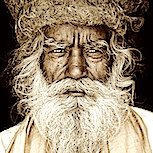 Tantipa Tantipa Mahasiddha #13 When he was 89 years old, Tantipa’s wife died and he became increasingly decrepit and senile. Becoming more and more of a liability to his weaving business and an embarrassment to his family, they built a hidden-away hut for him so they and visitors wouldn’t have to see or hear him. A passing-through Mahasiddhia, Jalandhara gave him teachings and practices to prepare for death and after many years of his silent meditation practice, he overcame the debilities of old age, attained the highest realization, became involved again in his cultural world even stopping the practice of animal sacrifice in his district. His life symbolizes and represents both the internal and external potentials of old age, the inspiration that any condition is fertile ground for enlightenment. |
| Wei Wu Wei | 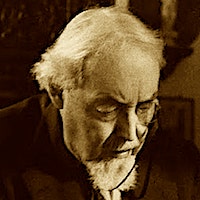 Wei Wu Wei Wei Wu WeiSkillful translator from Taoist insight into modern, English language Wei Wu Wei's cousin founded the UK Royal Ballet while he created the Cambridge Festival Theater, produced more than 100 plays, wrote books on ancient Egyptian history and culture, raised his family's racehorses, won 11 major races, and married a Georgian princess and a Russian noblewoman. His wealth, success, and fame, however, left him empty and without meaning. He took on the pseudonym, Wei Wei Wei, and wrote 8 books and numerous articles that brought insight and ancient wisdom into modern language. Befriending Lama Anagarika Govinda, Dr. Hubert Benoit, John Blofeld, and Dr. D. T. Suzuki; he helped translate and bring the insights of Taoist and Buddhist understanding into modern, cultural influence. |
| Solomon | 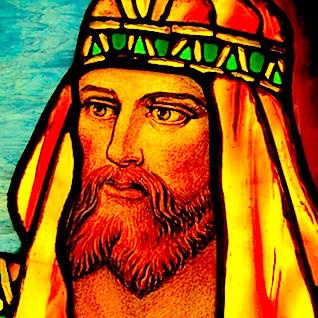 Solomon SolomonMagician, exorcist, great prophet of Judaism and Islam Wealthy and wise king of Israel, son of David, builder of the First Temple in Jerusalem; Solomon – known as a great prophet in both Judaism and Islam, a "Righteous Prophet and King" in the Eastern Orthodox Church, and a great hero in Freemasonry – is not without his detractors for following foreign traditions and marrying foreign wives including a Pharaoh's daughter and Naamah, the only foreigner Queens Mother of Israel or Judah. His openness, wisdom and refusal to fixate on dogmatic orthodoxy invites him to this list. His renown as magician and exorcist include famous legends like the One Thousand and One Nights’ genie sealed in a bottle with his Seal. |
| Jean Houston | 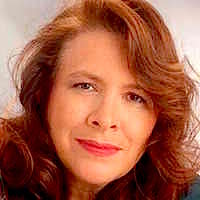 Jean Houston Jean HoustonVisionary thinker, philosopher, scholar, historian, and author of 26 books; Jean Houston was trained by Teilhard de Chardin, Eleanor Roosevelt, as well as her father who was Bob Hope’s main comedy writer for 35 years, She’s an active consultant to leaders of 25 countries, worked with the United Nations and UNICEF in more than 100 countries, and helped Hillary Clinton write her book, It Takes a Village. She participated in LSD research before it became illegal and is considered one of the main founders of the Human Potential movement. Her friend and mentor Margaret Mead lived with her the last few years before she died and another lifelong friend, Buckminster Fuller said her “mind should be considered a national treasure.” |
| Makeda, Queen of Sheba | 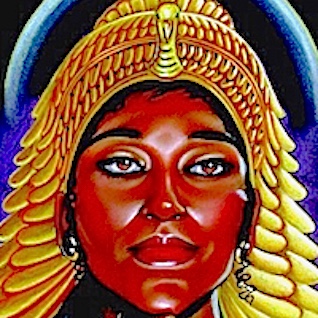 Makeda, Queen of Sheba Makeda, Queen of ShebaEmbodiment of Divine Wisdom Viewed as the embodiment of Divine Wisdom in the Kabbalistic and mystical Christian traditions, immortalized in the Hebrew Bible and the Muslim Koran, in Persia considered a daughter of a Chinese king and a fairy spirit, part of the founding myths for the modern states of Israel and Ethiopia; Makeda is the first person referred to as Queen in the Bible and ruled over Upper Egypt, Ethiopia, and parts of Arabia. Extremely wealthy and known as a wise prophetess, she challenged Solomon’s wisdom and later had his son, Menelk who became the first emperor of Ethiopia. |
| Anthony Trollope | 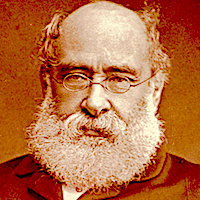 Anthony Trollope Anthony TrollopeNovelist as teacher Victorian novelist, political aspirant, writer of 47 novels and many short stories; Trollope focused his popular stories on everyday, householder events—situations average people could identify with and learn from. He understood and vividly described the role of money and materialism in the daily business of common people, officials, and institutions. They examined the time’s social, political, and cultural issues like the unfortunate role of women in Victorian society. His influence spread through his fans—people like Prime Ministers Harold Macmillan, Sir John Major, and John A. Macdonald; John Kenneth Galbraith, W. H. Auden, George Elliot, Sue Grafton, Edward Fitzgerald, and David Mamet. Alec Guinness liked his books so much, he never traveled without one and Siegmund Warburg said "reading Anthony Trollope surpasses a university education.” |
| Dilgo Khyentse Rinpoche | 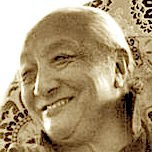 Dilgo Khyentse Rinpoche Dilgo Khyentse Rinpoche"Mind" incarnation of Jamyang Khyentse Wangpo Vajrayana master, poet, terton, scholar, and head of the one of Tibet’s main traditions; Khyentse Rinpoche became a major resource and driving force during Tibetan Buddhism’s transition out its 1000 years of isolation into the rest of the world. A descendent of Tibet’s legendary king, Trisong Detsen and a political minister father; he began an intense meditation practice and religious philosophy training when only 7 years old and then spent 13 years in caves and remote hermitages doing solitary retreats. An “archetype of spiritual teacher” and root teacher to hundreds of Tibet’s young lamas and to most of Tibet’s important modern teachers including Chogyam Trungpa, Dzongsqr Khyentse, the Dalai Lama, and Pema Chödrön; Khyentse Rinpoche’s wisdom and compassion continues to spread throughout the world. |
| Charles Luk | 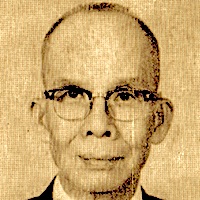 Charles Luk Charles LukUpāsaka, translator, disciple of Tibetan Vajrayana,Taoist and Chán meditation masters; Charles Luk began translating famous Chinese texts into English before most people in the West had had even heard of these traditions. He translated Buddhist Sutras, important books on Daoist Neidan meditation, and wrote many commentaries and biographies. |
| Machiavelli | 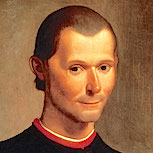 Machiavelli Machiavelli Unjustly vilified by history as well as his contemporaries, Machiavelli is known as the “founder of modern political science,” a major influence on the USA’s founding fathers, and the development of modern science. Personified with unscrupulous, immoral political activity, devious deceit, realpolitik and evil tyrants; many of history’s true heroes like Spinoza, Rousseau, Francis Bacon, John Milton, Montaigne, and Descartes secretly considered him an inspiration for the Enlightenment that followed 200 years later. Rousseau thought his book The Prince - far from condoning - was not written as advice to ruler who already understood these principles but rather satirically exposed their corrupt methods to the common people. Not the source for the quote, “The end justifies the means,” Benjamin Franklin and Thomas Jefferson considered him a “partisan of liberty” and John Adams seriously studied his philosophy and used it to clarify the Constitution’s idea of mixed government. |
| Daniel Webster | 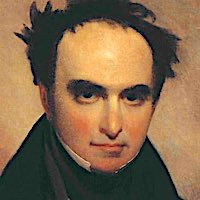 Daniel Webster Daniel WebsterAmerica's greatest orator Two-time US Secretary of State and presidential candidate, leading Supreme Court attorney, and Senator; Daniel Webster was named as one of the five greatest senators in history, gave "the most eloquent speech ever delivered in Congress,” and his style—for at least 75 years—became the main exercise for students of oratory. A key supporter of President John Quincy Adams and leading opponent of Andrew Jackson, historians consider him instrumental in maintaining United States union over the Southern efforts of creating a states-rights Confederacy. In John F. Kennedy’s book Profiles in Courage, he described one of his positions risking denunciations and his presidential ambitions, one of the “greatest acts of courageous principle in the history of the Senate.” On the other hand however, he supported wars against Native Americans, the Fugitive Slave Act of 1850, war against England because they wouldn’t return fugitive slaves, and opposed the Dorr Rebellion. In many ways, Webster represents the art of compromise—both the positive and negative aspects of giving away something important for something even more important. For example, he supported the Fugitive Slave Act of 1850 which made it easier for slave owners to recapture runaway slaves; but, in exchange, California was admitted into the Union as a non-slave state tipping the balance to more non-slave than slave states. |
| B. Alan Wallace | 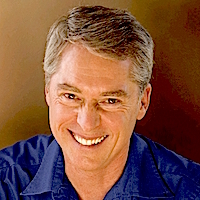 B. Alan Wallace B. Alan WallaceTranslator, Tibetan Buddhist scholar, professor, and consciousness-studying scientist; Alan Wallace blended his 14 years as a monk and ordination by the 14th Dalai Lama with his scientific, research projects into understanding the nature of mind. He’s written 19+ books, many articles and papers, and translated innumerable Buddhist scriptures into understandable modern texts. However, his inclinations tend to gravitate more toward the words than the sense, the belief rather than the personal experience. |
| Witter Bynner | 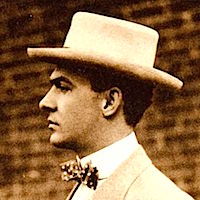 Witter Bynner Witter BynnerTranslator, poet, and scholar; Bynner traveled and lived in China, intensely studied Chinese culture, and worked for 11 years translating T'ang Dynasty poems. A student of George Santayana at Harvard, he was a conscientious objector during World War I, and championed the women’s suffrage movement. Writing more than 39 books himself, he also actively supported poets and artists becoming friends with D.H. Lawrence, Georgia O'Keeffe, Carl Sandburg, Ansel Adams, Willa Cather, Igor Stravinsky, Robert Frost, W. H. Auden, and Aldous Huxley. Sponsoring Kahlil Gibran, he helped him publish The Prophet. |
| François Pétis de la Croix | 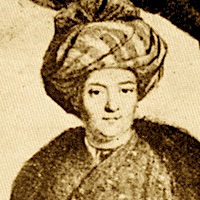 François Pétis de la Croix François Pétis de la CroixEarly and influential orientalist Translator, orientalist, interpreter, diplomat, and extensive traveler; Pétis de la Croix knew and spoke Arabic, Persian and Turkish. This led him into pioneering oriental studies of Sufism, the Masnavi Philosopher's stone, and the Muslim Qur'an. Much of his work however needed to be discrete and unpublished because his era was constrained by Catholic censorship, the witch craze, and extreme penalties for unorthodoxy. His influence did, however, inspire other works including Carlo Gozzi's The King Stag and Turandot. Benjamin Franklin popularized his publication of Genghis Khan's biography which became an influence on Thomas Jefferson and his Virginia Statute for Religious Freedom. |
| Shan Dao | 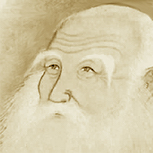 Shan Dao Shan DaoTranslator, entrepreneur, farmer, engineer, inventor, house-holder, and single father; Shan Dao grew up in a remote but culturally diverse village. Alienated from the materialism and militarism of his environment, he was drawn toward a spiritual path and at 4 years old began experiencing at first a mystical Christianity and later one more in harmony with Doestoevesky and Teilhard de Chardin. He practiced at first Rinzai and later Soto Zen, Tibetan Vajrayana Buddhism, and a Rimé Shambhala tradition which led to an immersion in the Tao Te Ching and the deep wisdom streams hidden but flowing in our many different religious cultures. |
| Thomas Cleary | 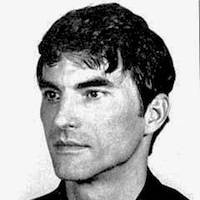 Thomas Cleary Thomas ClearyTranslator of over 80 books from 8 different languages, Cleary mainly focused on translating Buddhist, Taoist, Confucian and Muslim classics never translated into English. Motivated by his own spiritual path and interest in Eastern wisdom and although credential in the scholastic world with a PhD from Harvard and a JD from Berkeley, he shunned the security of academic and institutional roles staying independent and shunning academic cliques, organized education, sectarian allegiance, and anything with shades of a cult. More recently his interests involve Comparative Constitutional Law and he has translated Gallic law texts written in Old Irish with the intention to help the American legal system evolve past its difficulties adapting to our ever-changing new technological world. |
| Huineng |  Huineng HuinengThe Sutra of Hui Neng Traditionally seen as the Sixth and Last Patriarch of Chán Buddhism, Huineng symbolizes the essence of Zen and the non-thought lineage. From a poor family, Huineng’s father died when he was young and he never learned to read and write. While working as a laborer, he heard the Diamond Sutra and immediately set off to study with the Fifth Patriarch. Since illiterate, he could only work at the monastery doing chores like chopping wood and pounding rice. Because of his deep understanding and realization though, he because the dharma heir. Like the famous story about not mistaking a pointing finger for the moon, he deeply understood the sense, not only the words. |
| Dzigar Kongtrül Rinpoche | 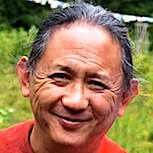 Dzigar Kongtrül Rinpoche Dzigar Kongtrül RinpocheTibetan tulku, buddhist lama, abstract expressionist painter, motorcyclist, and Pema Chödrön’s main teacher; Dzigar Kongtrul Rinpoche has called creativity “the essence of everything.” He continues a powerful rimé or non-sectarian movement that started in 19th century Tibet and promotes a blending of traditions, an appreciation of diversity, and an opposition to any kind of dogmatic narrow-mindedness or chauvinistic attitudes. Often in solitary meditation retreat but also frequently and widely traveling the world, Rinpoche stands out as one of the main modern influences continuing our tradition of Wisdom Beyond Words. |